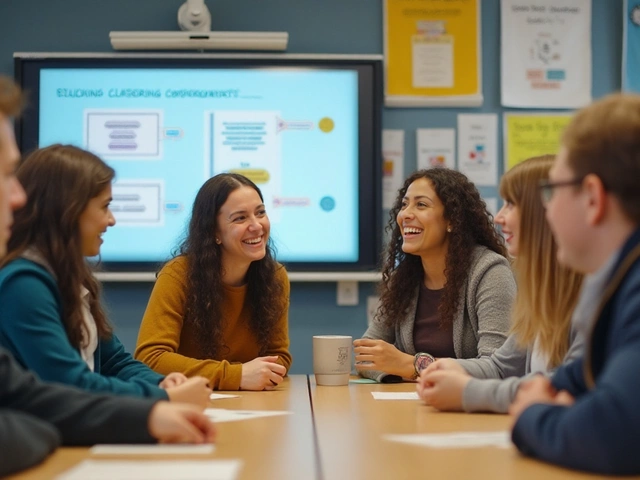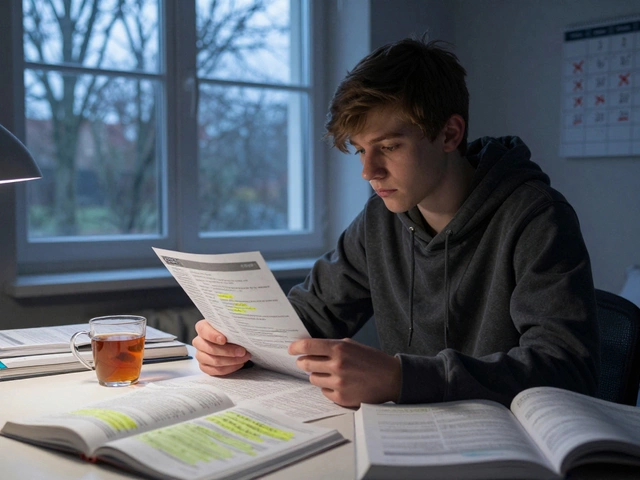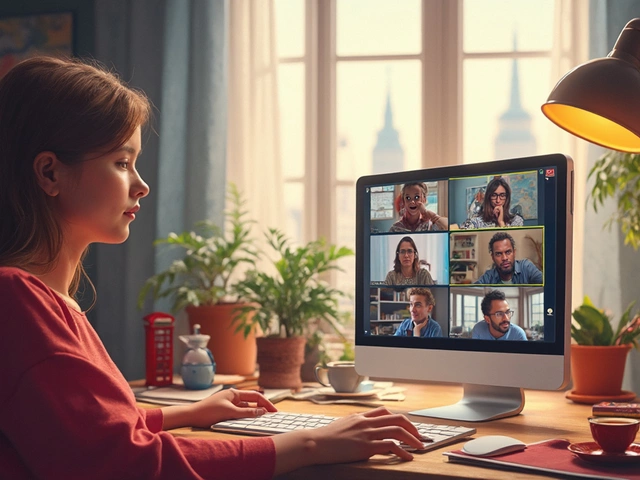Let’s be honest—learning a new skill as an adult can make you feel like your brain missed the memo. Picking up Spanish? That Duolingo owl suddenly looks judgmental. Trying to code? Even simple errors can feel personal. Why does this happen, though? Is it just forgetfulness or is there something deeper at play?
Turns out, it’s not just you. Science shows our brains really do change after a certain age. We’re not lost causes, but we don’t pick stuff up as easily as kids. Life doesn’t help either. Family, jobs, bills—there’s barely room to breathe, let alone sit and learn something new. Motivation is real, but so are distractions like your phone buzzing every two minutes.
But here’s the wildcard: a lot of what seems like “difficulty” is more about confidence, old habits, and a fear of looking dumb. No one wants to fail in front of their peers or their own kids. The good news? There are ways to flip the script. Stick around, and you’ll see exactly what’s at play, plus how to make learning less painful and—dare I say it—fun.
- The Adult Brain Isn’t Wired Like a Kid’s
- Too Much on Our Plate: Life Gets Crowded
- Fear, Ego, and Other Sneaky Blockers
- Teaching Methods Made for Kids Don’t Work
- Tips That Actually Make It Easier
The Adult Brain Isn’t Wired Like a Kid’s
Ever wondered why your nine-year-old can pick up a new language just by watching cartoons, while you barely remember five words after a whole week of practice? It’s not just in your head. The adult brain actually handles learning differently from a child’s.
Kids’ brains are like crazy sponges. They have way more connections between their brain cells, also called neurons. This network is what brain scientists call “plasticity”—it helps kids absorb new info fast and hold onto it. As we hit our twenties, this plasticity drops. It doesn’t go away, but it slows down, making adult learning feel a bit like pushing a car uphill.
| Age | Brain Plasticity | Typical Learning Speed |
|---|---|---|
| Children (0-12) | Very High | Fast |
| Teens (13-19) | High | Moderate-Fast |
| Adults (20+) | Lower | Slower |
Here’s another thing: adults already have a ton of knowledge hard-wired in. That can help with some stuff—patterns, logic, making decisions—but it also means the brain is less open to brand-new ways of thinking. The brain likes to stick with what it knows. When you try to learn a new skill, you’re not only building new connections, you’re also fighting against old neural pathways that love sticking around. That’s why picking up new skills or changing habits can feel like pulling teeth.
Does this mean it’s hopeless? Not at all. Adults have some advantages too, especially in things like problem solving and life experience. But knowing your brain is less “sponge” and more “solid structure with a few open doors” means you have to approach adult education differently. It takes more patience, repeated practice, and sometimes, figuring out ways to connect new info to what you already know. That re-wiring can be slow, but it is real and possible.
Too Much on Our Plate: Life Gets Crowded
If you feel like your brain gets fried by noon, you’re not alone. The adult world runs on a nonstop schedule—work, bills, kids, chores, and those "urgent" emails that hit you right before bedtime. It makes carving out time for adult learning seem almost impossible. Research from the National Center for Education Statistics found that more than 60% of American adults say lack of time is their main barrier to going back to school or picking up new skills. Sound familiar?
Let's put it in perspective. When you were a kid, your biggest concern was homework and maybe a sports practice—your whole life was basically designed for learning. As an adult, every new activity fights for space against real obligations, not just hobbies. Your boss doesn’t want to hear you missed a meeting because you were practicing guitar.
There’s also the “mental load.” Every unfinished task or looming responsibility eats away at your focus. Studies have found that multitasking, something adults do daily, drops productivity by up to 40%. When you sit down to read or take a class, your mind keeps circling back to groceries, deadlines, or that broken faucet waiting at home. No surprise if your motivation tanks before you even start.
| Distraction | Frequency (per day) | Impact on Focus |
|---|---|---|
| Smartphone notifications | 80+ | High |
| Work interruptions | 30+ | Medium |
| Family demands | 10+ | Very High |
But even with all this, there are ways to outsmart a packed schedule:
- Block tiny windows on your calendar—15 minutes matter more than you think.
- Tell your family or roommates you need “do not disturb” time, even if it feels awkward at first.
- Make your lifelong learning part of your routine, like walking the dog or morning coffee.
- Use apps that limit distractions while you study. One simple setup can protect your focus for an hour.
Battling a chaotic life isn’t about waiting for a perfect moment. It’s choosing to build space for adult education, even if it’s just a sliver between the chaos.

Fear, Ego, and Other Sneaky Blockers
There’s nothing like the sting of making a mistake in front of other grown-ups. One of the biggest hidden hurdles in adult learning isn’t information overload or a slow brain—it’s what’s going on inside your head. Fear of failure tops the list. Nobody loves the idea of raising their hand and giving the wrong answer at work or in a class full of strangers. When I tried learning to play the guitar, I wouldn’t play in front of anyone but my spouse because I was embarrassed at how slow I was compared to YouTube kids.
Ego plays a weird role too. By adulthood, we’re used to being good at the things we do each day—at our job, at home, with our family. Starting at zero again messes with that comfort. Suddenly, you’re the newbie, and it’s hard not to measure yourself against other people or even your younger self. ‘Why can’t I remember this stuff like I used to?’ is a thought that runs through a lot of people’s minds.
Then there’s the baggage we bring from past failures in school or life. A report from the National Center for Education Statistics found that many adults hesitate to join adult education classes simply because they had a rough time in school years ago. Those old feelings stick around longer than you’d expect.
Emotions aren’t the only sneaky blockers. Some folks have built up habits over the years—watching TV to de-stress, or scrolling social media instead of reading. These habits stick like glue, making it harder to use time for learning. There’s even data on this—recent studies say adults in the U.S. spend an average of 2 hours and 31 minutes a day on social media. Imagine swapping just half an hour of that for skill-building.
| Common Blockers | Impact on Learning |
|---|---|
| Fear of embarrassment | Lowers participation in group learning |
| Ego/pride | Stops people from starting or finishing new courses |
| Past failures | Reduces motivation and self-confidence |
| Distracting habits | Steals time from learning activities |
If you find yourself making excuses or shying away from challenges, you’re definitely not alone. Recognizing these mental and emotional blocks is the first—and maybe the most underestimated—step in making lifelong learning work as an adult. The trick is to outsmart your own brain and be a little kinder to yourself along the way.
Teaching Methods Made for Kids Don’t Work
Ever sat in a classroom meant for adults and thought, why does this feel like grade school all over again? Here’s the problem: adult learning isn’t set up like kids’ learning—and it shouldn't be. Most of what schools and training programs use are hand-me-down methods built for children, not grown-ups.
Kids soak up facts because their brains are wired for it. They follow along because they’re told to, not because they care about the topic. Adults, on the other hand, need to know why something matters. If it doesn’t connect to real life, it’s just noise.
Here’s an example. A lot of adult education classes still ask you to memorize long lists or sit through endless lectures. Remember all those spelling tests and history dates? It worked (sort of) when you were ten, but now? Your attention checks out after five minutes. Adults want stuff they can use now—practical, job-related, or just useful for daily life.
- Adults bring experience. You’re not a blank slate. Every lesson needs to fit what you already know or have lived through.
- Motivation is personal. If you’re learning something for work, you want it to pay off fast. If it doesn’t, you won’t stick around for long.
- Independent learners. Most grown-ups want some control. Forced assignments and strict lectures go in one ear, out the other.
There’s real science behind all this. A study from the American Institutes for Research showed adult learners do better with active, hands-on approaches—like case studies or role playing—rather than passively listening to information. See the difference below:
| Method | Retention Rate |
|---|---|
| Lecture Only | 5% |
| Group Discussion | 50% |
| Practice by Doing | 75% |
If you’re frustrated because those ‘old school’ techniques don’t cut it, you’re not alone. Adult education works best when it’s practical, social, and gives you ownership over how you learn. If you can use it tomorrow, you’re much more likely to stick with it today.

Tips That Actually Make It Easier
Alright, so you know why picking up new things as an adult can make you want to hide under the covers. Now, let’s get to what really helps. These aren’t magic tricks—just practical moves based on what we know about adult learning and how the brain works.
- Break Things Down. Don’t try to swallow everything at once. Whether it’s learning Python or the guitar, chop the task into tiny pieces. Microlearning—tackling one short lesson at a time—is proven to work.
- Make It Practical. Adults remember stuff better when it actually relates to real life. Connect what you’re learning to your own job, home, or daily routines. That boosts memory and keeps you interested.
- Use Spaced Repetition. Ever hear of flashcard apps like Anki? These use the spaced repetition method—reviewing material at increasing intervals. Studies show this helps the adult brain hang onto information way longer than cramming.
- Find Your Learning Style. Not everyone learns best by reading. Some people swear by audio, some need pictures, others want to get hands-on. Try out videos, podcasts, drawing, or tinkering with the thing you’re learning about until it clicks.
- Sleep On It. Sleep does more than just recharge you. Science says new info you’ve just learned settles into your long-term memory while you sleep. Even short naps after practice sessions make a difference.
- Don’t Go Solo. A study from the University of Washington found that adults who were part of learning groups (even online ones) finished courses way more often than those going it alone. Team up for accountability.
- Forgive Yourself for Mistakes. Kids mess up all the time and don’t take it as proof they’re hopeless. Adults? We beat ourselves up. Give yourself room to be lousy at first—mistakes are part of lifelong learning.
Here’s a quick look at real numbers. A 2023 Pew Research survey found just over 46% of American adults tried to learn a new skill in the past year, but only about 23% actually stuck with it long enough to say they made solid progress. The adults most likely to finish? Those who had a routine, practical goals, and some sort of community or buddy system.
| Strategy | Success Rate (Sticking with learning) |
|---|---|
| Learning alone | 18% |
| Group or buddy system | 32% |
| Daily routine & practical examples | 36% |
The bottom line? Don’t stress about being a natural. Use these down-to-earth strategies and you’ll be surprised how much more doable adult education can get.






